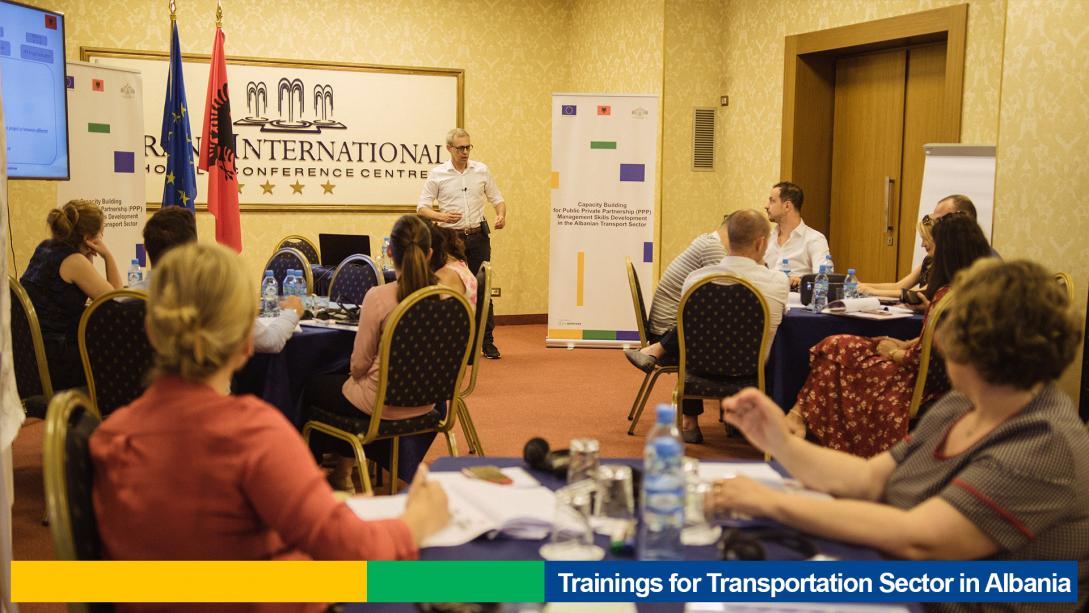Stronger knowledge and skills for better roads in Albania

For Albania, good road transport is the key to a prosperous tourism sector. Quality roads make it easier for tourists to travel across the country to discover its hidden gems: archaeological sites, amazing natural parks, a rich cultural heritage, pristine beaches, impressive culinary traditions and the generous hospitality of the Albanian people.
The Albanian citizens who go to work and those who drive the economy forward are also in need of good roads, and so are the students who need to make it to their classrooms daily. Roads keep different communities and people together creating interconnectivity, which lies the foundations of a country's prosperity.
Albania, aspiring to join the European Union, is also making rapid changes to improve its road network standards. These efforts contribute to a greater connectivity and increased economic exchange with its neighbouring countries. At the same time, efficient measures are being taken to strengthen the institutions that are in charge of road transportation and to align the Albanian laws with EU legislation in the transport sector. Efforts are also being made to increase the capacities of experts involved in the planning, implementation and monitoring of laws concerning road transport. There is a particular focus on training civil servants to manage contracts in road construction sector in line with international standards and EU directives.
In this context, the EU is currently supporting the Government of Albania through various development and technical assistance programmes. A current EU-funded project for capacity building aims to the address main issues in the transport area. It contains a series of training activities for 30 participants, including the staff of the Ministry of Infrastructure and Energy, together with the officers from the Ministry of Economy and Finance and the Albanian Road Authority as the primary beneficiaries. The Office of the Prime Minister and the Procurement Agency will also benefit from this initiative, which will run until February of 2020.
These capacity building activities are structured into four modules delivered by a team of international experts from May to October 2019. During the first module, participants got acquainted with the principles and programmatic elements for the development and implementation contracts in the road transport sector. The other three modules are focused on the different aspects of contracts in this sector, such as financial, procurement and legal guidelines, as well as monitoring and implementation throughout the contract. Study tours and on-the-job training are also used to provide the participants with practical skills and knowledge of best practices in the road sector.
The participants of this capacity development initiative acknowledge the relevance of this training that contributes to an increase in their work performance. The added value of the training methodology, which is based on interactive sessions and 'learning by doing’, consists in helping them to develop practical skills in forecasting, planning and operational aspects of these contracts. Furthermore, the content of the training is tailored to the needs of the recipients. It envisages the development of their skills through their direct involvement with the formulation of definitions and solutions to cases, all of which will serve as references in their future work.





